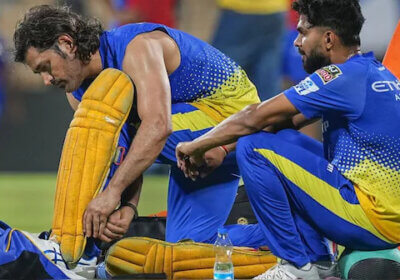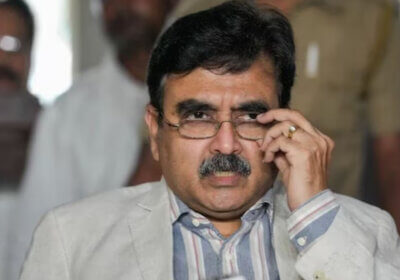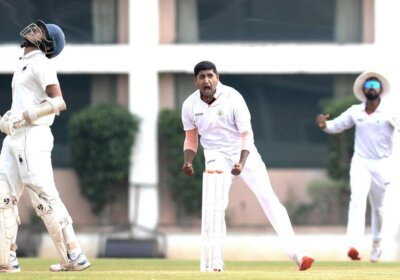A review of Netflix’s new documentary ‘Caught Out,’ focuses on the 2000 match-fixing scandal in India
You should avoid watching anything that makes you remember the nightmare you had as an Indian cricket fan. However, when Netflix released its documentary ‘Caught Out,’ based on the cricket match-fixing scandal in 2000, one had to watch it to see what they had touched on.
The documentary, as its subtitle indicates, gets up close and personal with the dirt in the game that was first discovered in India at the beginning of the twenty-first century. In that regard, it primarily focuses on that turbulent year when everything about the game seemed to be a lie and caused you to doubt your unwavering devotion to a pastime that had hooked you since you were a young child.

Caught Out On Netflix : Do you get the answers on match fixing in 90s?
There are no new revelations, and the focus is primarily on Azhar
So, when the documentary came along, you questioned whether you would once again be overcome by those same thoughts. Sadly, the documentary fails on that front because it does not reveal anything new or previously unknown, especially to those who have lived through it.
There weren’t any brand-new revelations; in fact, the documentary’s timeline-moving pace made it seem a little hurried.
The other characters in the story have been conveniently overlooked. It’s possible that the others were omitted due to time constraints, but you can’t negate the past by not referencing that Ajay Jadeja, a former India all-rounder, was also banned for five years alongside Azharuddin on a similar charge.
The entire documentary is based on the CBI investigation. However, it completely ignores the BCCI investigation, which was led by RK Raghavan, a former CBI officer himself. Despite opposition from some quarters, the BCCI ultimately decided to impose the ban on Azhar and others based on the Raghavan report.
There is no single mention of Ajay Jadeja.
Apart from Azhar, the only other player who was still actively involved in playing the sport among all the banned players was Jadeja. So the whole act of not mentioning Jadeja’s name or his ban was a little perplexing. Jadeja held press conferences denying his involvement, but despite this, he was still barred by the Board. The documentary should have mentioned his name at least once because the event did occur.
They used archival footage effectively and did a good job of sourcing it. But it was a little unfair to dismiss one country, India, as the only place where the players were involved.
Where the documentary appears to be lacking
We had hoped for a bit more from the creators in terms of attempting to educate people on the differences between gambling, betting, and fixing. Not every bet involves fixing, but every bet involves fixing. This is a concept that could have been clarified. The Indian legal system’s lack of clarity could have been investigated. After building up the entire saga, the lack of legal support appears almost as an afterthought near the end.
Cricket’s True Origins of Match-Fixing
The entire fixing saga was first reported in 1979-80 when the toss in an India vs. Pakistan Test match was the focus of attention.
There were also isolated instances of bets being placed by former Australian players such as the late Rod Marsh and Dennis Lillee in the famous Botham Test of the 1981 Ashes.
Former Pakistani players also claimed to have fixed it in the 1980s.
Previously, another late cricketer, Dean Jones, had been under investigation for providing pitch and weather information to a bookie.
The Australian players were also involved in a fixing investigation during their 1998-99 tour of Pakistan. In 1995, Warne and Mark Waugh were fined for providing information to a bookie.
Assuming that only Indian players were involved in the entire unsavory debacle is thus a false argument, and the decision not to bring to light others named in the entire episode was not well-thought-out.
Though the infamous Hansie Cronje case has been brought up, nothing has been said about how South Africans responded when the news first broke.

Caught Out On Netflix : Do you get the answers on match fixing in 90s?
They did mention journalist Anirudh Bahal’s 1997 investigation. What they failed to mention is that in the same year, a former Pakistan captain, Rashid Latif, claimed that four Indian cricketers were involved in match-fixing in an investigation conducted by Bahal himself.
It was somewhat unfair to fix in India back in 2000, just around what happened that year. Before bringing up the entire fixing saga of 2000, which served as a sort of capstone to the entire episode, you need to consider all of the factors.
Though it might serve as a brief history lesson for younger generations, providing them with knowledge about what happened. But if you’re a member of the Baby Boomer, Gen X, Millennial, or Silent generation, you might feel like you’ve seen it all.
Bottom Line
The bottom line is that Caught Out on Netflix India misses the spark and spice, it does not reveals any unknowns as such and is basically a recap of the events that happened in the late 90s and early 2000s that were already known to the masses throughout the cricketing world.
For what to watch next read Latest Movies And Web Series Releasing In March 2023























Leave a Reply